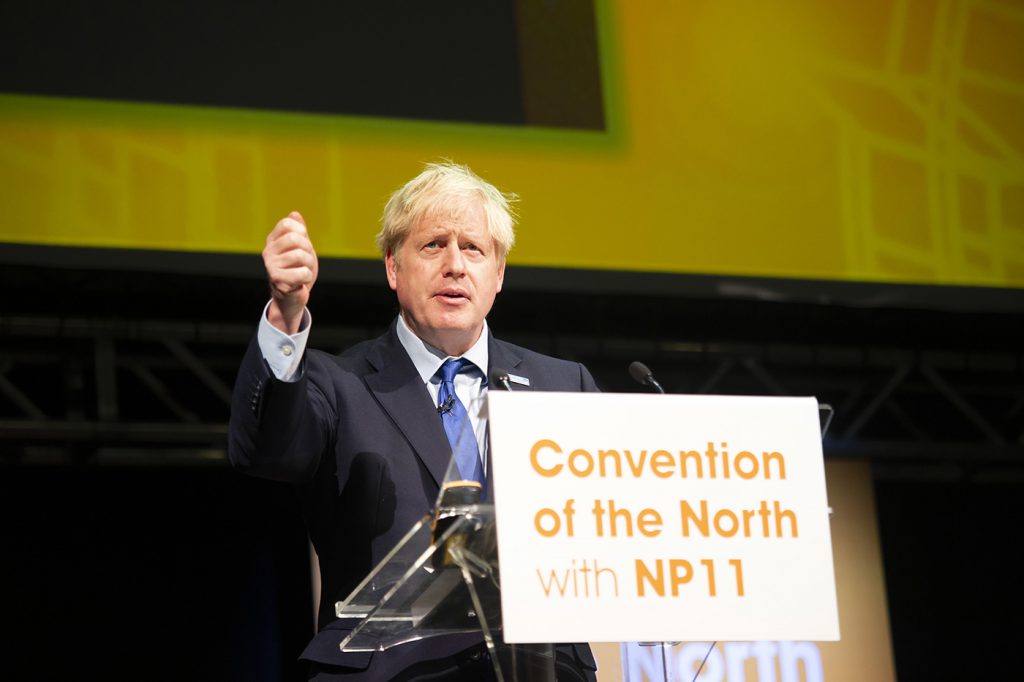It’s almost 10 years since I moved from Manchester to start a new life in the South West with my family.
I’ve spent time all over the region since 2010, working in every county. I love its culture, quality of life and the opportunities it has offered us.
The South West is an area of contrasts. It’s largely rural, with successful and sought-after cities like Exeter, Bath and Bristol. These cities are brilliant places to live and work, if you have the skills and experience to find employment there – and can afford somewhere to live.
Somerset, where I live, highlights the region’s contrasts. Many people know the county for Glastonbury festival and Europe’s largest construction project at Hinkley Point C, which is worth £50bn to the region over the coming decades. These are very different things, which together make Somerset an attractive destination for many.
There’s shedloads happening here, and we’re proud to play a part in some of this at Social since we set up in the South West. We’ve supported major developments in Bristol and Gloucester. And we helped the region’s nuclear industry raise its national and international profile.
It’s difficult to know if things would be better for us if we lived elsewhere. But, of all the places I’ve lived and worked, I wouldn’t want to be anywhere else.
Why speaking ‘as one’ matters
This isn’t to say that I don’t look on jealously at what’s happening in the north of England and the Midlands. Both regions are positioning themselves as vehicles for investment and growth, or Powerhouses and Engines if you like.
Last year, I watched as colleagues led a campaign for 11 northern Local Enterprise Partnerships to highlight the pressing need for Government investment in their region. The campaign got the public’s attention. A high point saw the region’s media come together to present a Manifesto for the North across their front pages.
https://twitter.com/nick_forbes/status/1192211563274526725
Boris Johnson also attended a campaign launch event, which the region’s leaders used as a platform to make their case.
This campaign was the result of work to bring partners together and agree some clear asks that they could all support. Sure, there is some flex around these requests, and partners will see them differently. But, watched from a distance, the message was unmistakable: we want action, and we want it now!

The government appears to be listening. Its focus on ‘levelling up’ the regions featured in last year’s election campaign, after ‘getting Brexit done’ of course. Setting up a Ministry for the North and moving the House of Lords to York are being considered. The Government will feel compelled to act, to maintain the seats the Conservatives won in the north and Midlands.
Whatever the government does to address huge economic gaps between London and the South East and the rest of the UK, the case for action is clear. It’s true that we’ve seen plenty of initiatives before. Anyone who remembers RDAs, Government Offices for the Regions, City Deals and the Local Growth Fund will know this.
It feels this time as though regional leaders, some of whom have worked in Government, are asserting themselves. This is great for those areas who have this in place. Regions who make their case strongly and consistently will get attention from this government. We look forward to helping clients navigate this terrain.
South West struggles
So where is the South West in this conversation about levelling up the regions? We have challenges that need addressing just as urgently as other regions.
Across housing, transport, skills and technology, progress is happening – but it’s patchy. In some cases, we appear to be moving backwards.
One example is in regional planning. In the West of England, which covers four local authority areas around Bristol and Bath, partners are moving away from a joint plan to map thousands of new homes over the next 20 years. Heralded as a game-changer, the plan took five years to get to a point where it no longer seems workable. Thousands of hours and millions of pounds were invested in this process, without success.
Major infrastructure investment – in transport, energy, broadband, roads – is often stalled by poor engagement which overlooks community concerns.
Our productivity, especially outside the cities, is well below the national average.
And regional leaders grapple with a stream of initiatives, which blind people to what makes the South West such a special place.
All the while, I hear frequent questions about what the South West – or the West of England or the Heart of the South West– really is. How you answer this question will depend on different perspectives. It highlights the importance of identity and regional pride as a unifying force. This is well demonstrated by the North and the Midlands campaigns, which concepts like the Great Western Gateway don’t have.
Having lived and worked here for 10 years, I wonder if it’s possible to find consensus on the question of what the South West is. It feels to some like an ill-defined construct in a way that to be northern is not. If this is a barrier to the region speaking ‘as one’, how can we find a voice on the issues that matter?
Take a different path
I’ve written before that we don’t need a Powerhouse campaign to make this work. After all, we do things differently here, so why would adapting someone else’s campaign work for us?
Efforts to define the South West deflect from the bigger question about what our communities and businesses need to succeed. Maybe these opportunities should be the starting point for a discussion with government.
There are some areas we’ve worked in over recent years that would be perfect for a regional voice to get behind.
#1 regenerating transport hubs: Around Bristol Temple Meads, thousands of new homes and jobs, a new education campus, workspace and an improved station are planned. If successful, it will bring huge benefits to the entire region. But it needs investment and public support to progress. As a gateway to the South West and a major employment hub, investment here would ‘level up’ regional growth and support more sustainable travel. And God knows we need better public transport – don’t even speak to me about bus services across the patch.
#2 better energy: Environmental and technological pressures make it vital to find different methods of energy production that reduce our carbon footprint. The South West’s nuclear and renewables industries make the region a leader in this field – and there are opportunities to build on this. The Government recently committed £220m to bring forward the world’s first nuclear fusion plan in the UK. The South West could provide this. The benefits it could bring – in jobs, investment and profile for the region – would be tremendous. What is stopping us from campaigning for a facility here?
There are other examples where a coordinated push could benefit the South West. Other regions have shown what’s possible with some effort and investment in the right areas.
If we can find a way to draw attention to the opportunities here, we can bring forward the changes we want to see. In doing so, we may find ways to define the South West in ways that people can understand and relate to.
That sounds like a campaign worth working on!
I’d love to hear from anyone who works in the region who has any thoughts on this. To those who we’re already working with, we’re looking forward to supporting you in 2020.


